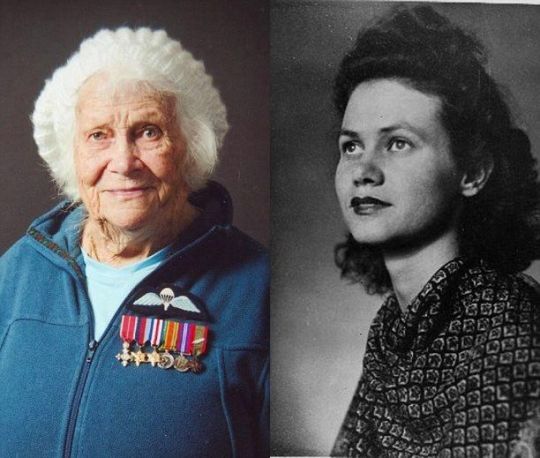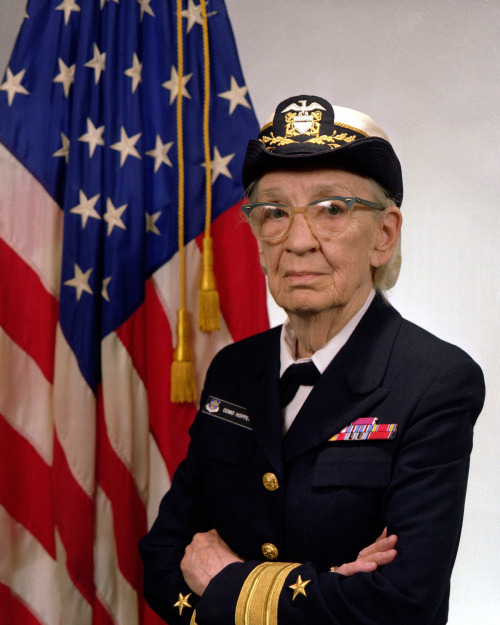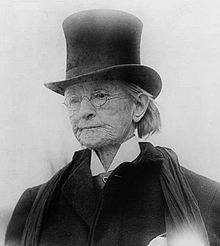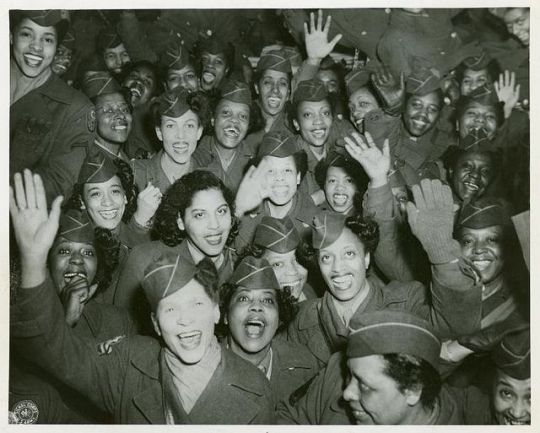Text
This. Women's health, wellbeing, and ability to function still does not matter, only sexual attractiveness to men.
wild how like PCOS, endometriosis, vaginismus & hell, even frequent yeast infections are “mysterious” with no well known cause and little to no decent treatment, but we have tons of supposedly well researched body fat removal methods, about 20 different kinds of breast implants, laser hair removal, and 100 different dermatologist recommended anti aging creams. we sure had the money and brainpower to cure those “diseases”
114K notes
·
View notes
Link
This makes me so angry, and is proof that science, medicine, and the world is still deeply misogynistic and patriarchal. for women, it is not only about sex. it is also the ability to use tampons and menstrual cups.
The real problem isn’t that we — as a culture — don’t sufficiently consider men’s biological reality. The problem is rather that theirs is literally the only biological reality we ever bother to consider.
So let’s actually talk bodies. Let’s take bodies and the facts of sex seriously for a change. And let’s allow some women back into the equation, shall we? Because if you’re going to wax poetic about male pleasure, you had better be ready to talk about its secret, unpleasant, ubiquitous cousin: female pain.
Research shows that 30 percent of women report pain during vaginal sex, 72 percent report pain during anal sex, and “large proportions” don’t tell their partners when sex hurts.
That matters, because nowhere is our lack of practice at thinking about non-male biological realities more evident than when we talk about “bad sex.” For all the calls for nuance in this discussion of what does and doesn’t constitute harassment or assault, I’ve been dumbstruck by the flattening work of that phrase — specifically, the assumption that “bad sex” means the same thing to men who have sex with women as it does to women who have sex with men.
The studies on this are few. A casual survey of forums where people discuss “bad sex” suggests that men tend to use the term to describe a passive partner or a boring experience. (Here’s a very unscientific Twitter poll I did that found just that.) But when most women talk about “bad sex,” they tend to mean coercion, or emotional discomfort or, even more commonly, physical pain. Debby Herbenick, a professor at the Indiana University School of Public Health, and one of the forces behind the National Survey of Sexual Health and Behavior, confirmed this. “When it comes to ‘good sex,’” she told me, “women often mean without pain, men often mean they had orgasms.”
7K notes
·
View notes
Link
Amen. And then they claim feminism has gone too far. it clerly hasn't gone far enough! as the article hints, all of these inequalities in sex are echoed in life and society at large.
December 27, 2015 by Suzannah Weiss
I was young when I came to discover masturbation, and I had orgasms long before I knew what they were.
Nothing about it seemed complicated. I just rubbed “down there” for a few minutes, and it happened. But later, magazines, comedy routines, and sitcoms taught me that my body – and vaginas in general – were mysterious and complex, often too complex for those without them to figure out.
Confirming what I’d been taught, orgasms weren’t as simple with partners as they were by myself. This is to be expected to some extent. There’s a learning curve when you’re getting to know someone new. But what confused me was that not everyone seemed eager to learn.
“Sorry,” I (unnecessarily) apologized to a partner for taking what I thought was too long.
“It’s okay. I know it’s harder for girls,” he said – and then stopped.
Compounding the lack of effort I encountered from some (though not all) partners, it became harder for me to orgasm when I started SSRI antidepressants. When I told my doctor, she said, “Oh, that’s hard for a lot of women anyway.”
I knew my body long and well enough to know being a woman wasn’t to blame, but others didn’t share my view that the problem was fixable. I grew hesitant to bring it up with partners out of fear that asking them to perform the supposedly impossible feat of getting a woman off was too demanding.
Orgasm doesn’t have to be the focus of sex, but if a woman wants one, she should have as much of a right to request it as anyone else does.
When people say that women’s bodies are more difficult – and these generalizations typically refer to cis women and are accompanied by rants about how complicated vaginas are – they teach cis women that an orgasm is too tall an order.
Trans women also have a slew of sexual stigmas attached to them, which Kai Cheng Thom describes here, though they’re beyond the scope of this article. In addition, though most research on orgasm inequity has studied cis women, trans and non-binary people with vaginas may relate to the frustrations of being taught their genitals are impossible to decode, too.
The view that cis women are hard to please maintains what sociologists call the orgasm gap, in which men have three orgasms for every one a woman enjoys, and 57% of women orgasm during all or most of their sexual encounters, but 95% say their partners do.
These statistics may appear to confirm the stereotype that women’s bodies are more complicated, but there are other forces at work.
As sociologist Lisa Wade points out, the orgasm gap is conditional. Lesbians report orgasming 74.7% of the time, only 10 percentage points lower than gay men. In addition, women take under four minutes on average to masturbate to orgasm.
If these statistics don’t convince you that there’s more to the orgasm gap than biology, here are twelve cultural factors that contribute to it.
1. People Believe Women Are Less Sexual
Women, the story goes, aren’t that into sex.
They may enjoy it, but they do it partially in exchange for validation, commitment, or financial support, popular wisdom says. As long as a woman is getting one of those things, she doesn’t need much out of the sex itself.
To the contrary, a lot of research and lived experiences indicate that women are as capable of wanting and enjoying sex as men.
Until we acknowledge this, we won’t prioritize making sex as enjoyable as possible for women because we’ll believe sexual pleasure isn’t as important to them.
It may not be because women themselves may buy into myths about their gender, neglecting their desires because they’re not supposed to have them. If they do, they and their partners miss out on balanced sexual interactions, not to mention fun.
2. Pornography Privileges Male Pleasure
Most people who have watched porn videos know they typically culminate with a “money shot” in which the man comes, and then the scene ends. Most woman-focused orgasms depicted in porn are merely incidental events on the path to a man’s pleasure.
Additionally, most mainstream porn scenes feel incomplete without blow jobs, while cunnilingus is less common.
All in all, the message is clear: It’s imperative that a man gets off, and if a woman manages to in the process, props to him, but it’s just an added bonus.
3. The Myth of ‘Blue Balls’ Persists
Blue balls, according to Urban Dictionary, is “the excrutiating [sic] pain a man receives when his balls swell to the size of coconuts because of lack of sex, unfinished bjs, and just not cummin when he knows he should.”
The entitlement reflected in this description is characteristic of most uses of the term “blue balls.” While vasocongestion, the accumulation of blood flow to the genitals, can occasionally cause mild pain in people with any genitals, this is not what men are usually referring to when they complain about blue balls. And whether they’re experiencing this or just sexual frustration, it’s never anyone else’s duty to relieve it.
Even though most women know no medical condition results from an erection that doesn’t lead to an orgasm, many of us feel guilty for not providing one. So, in addition to some men’s lack of effort to pleasure women, the pressure many women feel to pleasure men maintains the orgasm gap.
4. There’s More Information in the Media About Pleasing Cis Men Than Women
As a teenager, my secret guilty pleasure was buying copies of Cosmo from the drugstore and hiding them under my pillow to read at night.
I read all their sex articles just because I found anything sex-related titillating, but along the way, I learned all about different tricks to please men – and cis men, specifically. By the time I encountered a real-life penis, I already knew all the basic tricks in the book, plus some out-there ones my dude friends urged me not to try.
I don’t know what most teenage boys’ secret reading material was, but there aren’t many mainstream men’s magazines as obsessed with pleasing women as women’s are with pleasing men. If anything, I’ve heard it’s common for boys to sneak glimpses of Playboy, which is also geared toward pleasing men.
Maybe this explains why 25% of men and 30% of women can’t locate the clitoris on a diagram.
Amid all the advice we read about different ways to hold and touch a penis, many remain in the dark about vulvas and vaginas.
5. Hookup Culture Privileges Male Pleasure
“I will do everything in my power to, like whoever I’m with, to get [him] off,” one woman said in a study by Elizabeth Armstrong on college hookups. But when it came to their own pleasure, women held different expectations.
“The guy kind of expects to get off, while the girl doesn’t expect anything,” a woman in another study by Lisa Wade said.
Accordingly, one man in Armstrong’s study boasted, “I’m all about making her orgasm,” but when asked to clarify the word “her,” he added, “Girlfriend her. In a hookup her, I don’t give a shit.” Perhaps he sensed that women don’t expect much from their hookups.
Statistics about women’s orgasms reflect these attitudes.
The ratio of men’s and women’s orgasms is 3.1:1 for first-time hookups, but only 1.25:1 for relationships.
For whatever reason, hookup culture appears to have embraced the message espoused by the media that women’s orgasms are optional, while men’s are obligatory.
6. Sex Education Doesn’t Teach Us About Pleasure, Especially Female Pleasure
Like many schools in the US, mine only had a couple of days a year dedicated to sex education in middle and high school. During the initial classes on puberty, the portion about women was on periods and the portion about men was on erections, ejaculation, and wet dreams.
Already, our bodies were associated with making babies, while boys’ were associated with sexual arousal and pleasure.
Later on, we learned how to use a condom – along with how to complete a very normative sequence of events. You put it on, we were told, and then you have intercourse, and then someone ejaculates, and then you pull out and take it off. Men’s orgasms, but not women’s, were built into our safer sex lesson.
Nobody said “then you stop whenever you feel like it” or “your partner may need you to pull out” (because, contrary to what we see in porn, not every woman is multi-orgasmic and many have a refractory period, so we can’t all comfortably keep going until our partner wants to stop).
This is one sneaky way we learn to prioritize men’s pleasure without ever really learning about pleasure at all.
7. Self-Evaluative Thoughts Can Disrupt Women’s Arousal Process
Due to the emphasis on women’s appearances in mainstream porn and throughout the media, women learn to picture themselves during sex.
“How does my stomach look from this angle,” “Does my face look sexy or silly in this expression,” and “Would it be sexier if I made more noise?” are a few thoughts that have distracted me in the bedroom.
And I don’t think I’m alone: 32% of women say that when they don’t orgasm, it’s often because they’re stuck in their heads or focused on their looks.
Orgasm itself can become a source of performance anxiety.
Because the women’s orgasms are dramatized in porn and the media, with exaggerated moans and calculated facial expressions, some women feel so much pressure that fear of not coming keeps them from coming. This pressure can also lead women to fake orgasms instead of sticking it out for a real one.
Once again, women’s magazines don’t help.
Cosmo even provides a guide on “how to look even hotter naked.” Though “even” implies the reader looks hot already, the pre-bedroom workout routine and self-tanner application tips make it clear we don’t look as hot as we could – and even if we do, the focus is still on our partner’s pleasure, not what we see or feel.
Thoughts about partners’ perceptions place women outside their bodies, looking in, rather than inside them, feeling the sensations the sexual activity is causing. It’s hard to have an orgasm when you’re not even thinking sexual thoughts.
8. Sexual Trauma Can Impede Arousal and Orgasm
It’s extremely common for women to experience sexual trauma within their lifetimes. One out of six women has been the victim of attempted or completed rape.
According to sex therapist Vanessa Marin, this trauma can have lasting effects on one’s sex life.
“Sexual assault can rob your enjoyment of sex and can make any type of intimacy feel scary,” she said. “Some survivors experience feelings of disconnect or dissociation when they’re having sex. Others can easily get triggered by being touched in certain places or in specific ways.”
Marin recommends that survivors seek out therapy or a support group so they don’t have to deal with the effects of their pasts alone.
In the short-term, Marin has written that reminding yourself you’re with your partner, not the person who assaulted you, can quell trauma-related sexual problems. “Of course your brain knows that it’s [them], but this exercise can help the more subconscious parts of your psyche start to relax,” she writes.
Other emotions women disproportionately experience around sex, such as guilt and shame, may also lead to anorgasmia.
9. More Women Than Men Are on Antidepressants
SSRI antidepressants, like Prozac and Zoloft, can cause anorgasmia. This side effect isn’t gender-specific, but antidepressants themselves are.
Between 2001 and 2010, 25% of American women (but only 15% of men) had been prescribed medication for mental health conditions.
This may occur because women are more likely to suffer from anxiety and depression, both frequently treated with SSRIs, the medication class most commonly known to cause anorgasmia. There are many theories as to why, but one possible source of this difference is societal misogyny.
As Ally Boghun writes of her anxiety, “A lot of the stressors that impact me the most are actually stressors put upon women by society to look and act in certain ways.” In addition, women are more likely to seek therapy, since toxic standards of masculinity deter men from discussing their emotions.
This is one case where the orgasm gap may be related to biological differences, but the sources of these differences are still societal.
10. Women Are Discouraged from Asking for What They Want
Women are taught to accommodate others’ wishes and put their own on the back burner, to be pleasant and polite and grateful and not ask for more, whether that’s food, payment, or sexual pleasure.
To bring back Armstrong’s research, one woman said she didn’t have the “right” to request an orgasm and “felt kind of guilty almost, like I felt like I was kind of subjecting [guys] to something they didn’t want to do and I felt bad about it.”
I can relate: I’ve said “sorry” many times for requesting or giving myself the stimulation I wanted, for taking what I thought was too much time, and for receiving pleasure without immediately returning it.
The same fear that keeps women from voicing their opinions in work meetings or negotiating salaries also keeps us from speaking up in bed.
But until we can “lean in” without bumping into hostility, women can’t singlehandedly solve this problem in any domain. It’s also up to our partners, coworkers, and others to make it clear they want to hear and accommodate our wishes.
11. The Normative Definition of Sex Isn’t Optimal for Many Women’s Orgasms
When someone says “sex,” most people think of penis-in-vagina intercourse, even though it means many different things to different people.
For example, some couples may see oral sex as sex. Some may also put oral or manual sex on the same level as penetrative sex, but this is still not the norm.
When someone talks about losing their virginity, for instance, we usually assume they’re talking about the first time they had penis-in-vagina intercourse.
This assumption can be problematic for women who get off more easily through other activities.
In one survey, 20% of women said they seldom or never had orgasms during intercourse. Only 25% said they consistently do. In another, 38% said that when they don’t orgasm, a common obstacle is “not enough clitoral stimulation.”
Since penetrative sex often doesn’t directly stimulate the clitoris, this could explain why other types of sex – or clitoral stimulation during intercourse, which women considered the most common way they got off with a partner – may be more optimal.
When we consider the activities that often help women reach orgasm as warmup or extra, we deprioritize women’s pleasure.
12. People Think the Orgasm Gap Is Biological
Orgasm inequity is a self-fulfilling prophecy.
When men believe women’s bodies are an impossible puzzle, they don’t try to solve it. Neither do women who are taught their own pleasure is inaccessible.
That’s why it’s important we acknowledge all the societal factors that contribute to this discrepancy. Genetics can’t be fixed, but a lot of these problems can, which means that closing the orgasm gap is possible.
***
If you’re a woman having trouble orgasming, it’s likely not you. It may not be the result of any carelessness on your partner’s part either. You may just need to talk about it, challenge the myths you’ve learned about sexuality, and, if necessary, seek help for any psychological or medical conditions that could be contributing to the problem.
Or maybe it’s not a problem at all. Maybe orgasming isn’t important to you, and that’s your choice as well. But if it is something you would like, you have the same right to ask for it as your partner. If he expects orgasms from you, he shouldn’t mind you wanting one.
It’s not too much to ask, and your anatomy isn’t too complicated. The only thing that’s complicated is the toxic set of messages we’re taught about sexuality. But that’s not on you or your body.
1K notes
·
View notes
Link
All those who lament that women don't have children or marry anymore. This is one of the reasons: they simply do not want to risk this precarious future. This future is one of the reasons i cut off all relatives and family: i simply will not risk being coerced into this. And those patriarchalists would try to coerce me. they did try to coerce me "to think of others (without any thought at what expense to me)" before i cut everyone off.
And frankly, my parents were so shitty at parenting, that they do not even deserve any care "in return of taking care of me as a kid". My friends' dogs are more deserving.
“There are currently 44 million unpaid eldercare providers in the United States according to the U.S. Census Bureau and the majority are women. And yet there are very few support programs, formal or informal, in place to support these family caregivers, many of whom are struggling at work and at home. Working daughters often find they need to switch to a less demanding job, take time off, or quit work altogether in order to make time for their caregiving duties. As a result, they suffer loss of wages and risk losing job-related benefits such as health insurance, retirement savings, and Social Security benefits. In fact, a study from MetLife and the National Alliance for Caregiving calculated women lose an average $324,044 in compensation due to caregiving.
This impact to a woman’s career is significant. Caregiving tends to hit women in their mid-40s, just around the time their earning potential starts to wane and dangerously close to the age when they may not be able to reenter the workforce if they leave. According to a recent New York Times article, the job market is not promising for women 50 and older.
These same women are expected to live well into their mid-80s, and outlive (by about two years) the average man. How will they afford their own care later in life if they can’t save for it at midlife while they are caring for someone else?”
If you’ve been following me then you know I talk a lot about the distribution of childcare between mothers and fathers, how even when a mother is working full time outside the home in almost all cases she’s still doing more housework and childcare than the father / her partner, and this is a serious problem for gender equality because it leaves women with significantly less time and energy than men, which means men collectively have more time and energy than women to progress in their careers and into positions of power, so a major reason for the gender pay gap and women holding significantly less positions of power is due to women still being expected to bear the weight of most or all childcare and housework in almost every household globally.
However, recently a close friend of mine was tasked with caring for her aging parents, even though she has two brothers, but neither brother is willing to take on a significant portion of the care. This has brought to my attention another problem hurting and holding back women, the gap in who cares for aging parents. In almost all cases, the task falls on the daughters even if the aging parent(s) also has sons.
You’d probably guess this, but even if aging parent(s) don’t have daughter(s) and only have son(s)? Yeah, the sons still don’t lift a finger to care for their aging parents in most cases and the brunt of the care ends up falling on the daughter(s) in law, this is what happened when my dad’s mom got alzheimer’s, my dad sat back and did nothing while my mom had to take care of her ill and aging mother in law.
If we’re going to be talking about how equally sharing childcare and housework is an important issue for gender equality because making women do most or all the childcare and housework hurts women and holds women back, we need to talk about this in the scope of caring for aging parents, how putting most or all of the work of caring for aging parents on the daughter(s) while the son(s) get off scott free also hurts women and holds women back in the same respect because it does the same damn thing of leaving women with less time and energy than men to progress in their careers and hold positions of power in society.
1K notes
·
View notes
Photo
Comfort with pockets. good pockets. big pockets. plenty of pockets. That is my style.

S1482 - Style
18 notes
·
View notes
Photo
Truly magical.

magicplace by Kasia
17K notes
·
View notes
Text
Well said. This. And get rid of that pharmacophobia already. Some people need to take medications and medical treatments and procedures to have a life worth living. your recipy of yoga and mindfullness or whatever will not change that, even if it did _for you_ (it qualifies you as a bad person if you claim that to someone with health issues, especially if you do not have any, and actually have no idea what the other one is dealing with). What you can imagine may not even come near to what the other person feels or suffers. and as such, your assertions are passive aggresive gaslighting. Also respect another person's wish of not having to live in all circumstances, that is euthanasia, passive euthanasia, and declining treatment.
I was talking to my mom the other day, and she said she was going to start going to the gym, because its important care for your body. I’m disabled w/ multiple chronic illnesses, so going to the gym is impossible for me. She seemed to realize this, and started to backtrack, saying like - its part of taking care of herself, and I interrupted and said, “Its okay mom. You and I taking care of ourselves look very different”. And thats what I would like you to know.
Taking care of yourself looks different.
For some people, taking care of themselves looks like fruit smoothies and gym visits, cutting out sugar and weight training.
For some people, taking care of themselves looks like hospital visits, feeding tubes and ports. Needles and tests.
For some people, taking care of themselves looks like taking medication and lying down in a cool dark room.
For some people, taking care of themselves looks like getting any calories in their body that they can.
For some people, taking care of themselves looks like adding in more vegetables and trying to go outside to get sun more often.
For some people, taking care of themselves looks like seeing a therapist, keeping symptom journals, and practicing mindfulness, meds, or grounding techniques.
We all have different needs. Please don’t feel bad about how you care for yourself just because someone else is able to do “more”, or their care is more performative or obvious. Please don’t look down on someone for caring for themselves in a way that you do not. Medication and rest are just as important as exercise and vegetables.
Keep doing your best to care for yourself, the best way you know how. Your self care and health is important, no matter what it looks like.
71K notes
·
View notes
Text
This. And they are also constantly vilified by the baby boomers and others.

23K notes
·
View notes
Text
Gynecology is unethical torture
Yes, this is what i think. Too many practice still without applying local anesthesia, and those who do, do not apply it thoroughly enough. Women are expected to endure massive amounts of gynecological pain. I am afraid i was very proud of saying this is wrong and not tolerable, when a gyno said "no man would endure this without fainting" and my answer was an angry "no women should either! this mindset is wrong and unethical! IT SHOULD BE MALPRACTICE AND AGAINST THE RULES!" I stoop up for myself, and my experience, and refused to be gaslighted. i also screamed during the exam. i was not going to take the pain silent.
This is a narrative that dismisses and diminishes women's pain, that enduring pain is somehow heroic. Fuck, hell, no! AND DON'T FUCKING TELL ME TO "JUST TRY TO RELAX" WHEN ONE INSTINCTLY TENSES UP AND PUSHES AWAY FROM THE PAIN!!!!!!
They claim it should not hurt, only be a bit uncomfortable, but that is a whole lot of baloney and gynointerviews on articles even contradict themselves, so this is a disbelief of women and a culture of practice that forces women to endure pain, massive pain.
It has been long recognised that some people are so afraid of dentistry, that there is special training for dentists and special clinics for patients who are too afraid, and dentists recognise and respect this fear and do what they can to make it easy for their patients, using local anesthesia even when not needed, down to having dental work done under full anesthesia. But for women, just recognising that sexually traumatised girls and women would need special care is as absent as polarbears in Antartctica. (i did read an internet forum where a woman was dying--her bloodwork backed this up-- from her menstruations, because she was totally unable to have any kind of gynecological exam or treatment done. Trauma and PTSD, people!)
I have come to the conclusion that gynecology and obstetrics are more religions than sciences. No wonder women have lost faith in medicine - women are frequently mistreated and ridiculed by medicine. Excellent grounds of mistrust, there. Midwifery is btw not one iota better. it is even worse, in my opinion. they also seem to think that all women have regular vaginal sex with penetration by penis, and the only speculums they seem to have are big. They are also very badly designed, as is the whole damn exam table.
i can only think of how deeply traumatising any kind of gynecological exam is for any survivor of sexual abuse and/assault. The painful experiences i had from just the pain of the exams, smears and IUD was such, that the only way you could get me there was me literally dying because my uterus was killing me -- i was going there over my dead body.
They have to do better. women no longer go to papsmears, and for many, the reason is the horrendous pain. women don't go to gynecologists full stop, unless they are having serious medical issues. The only way the profession can gain back their patients is to use liberal amounts of anesthesia. ALL the way, not just one bit: you have to start applying anesthetic before anything in put in the vagina.
But truth be told, i am not keeping my hopes up, when those who are supposed to be the experts in the field can't even suspect endometriosis when someone has painful periods, and the condition has a 10% prevalence, of ALL menstruating people. It should be the first to suspect, not the last after 20 years of agony and life derailed. (yes, i would rather die at 55 from breast cancer than have endometriosis). They also seem to be very fond of gaslighting pregnant women by withholding information, so they can't make informed decisions. I've read articles that in finland onset of fear of vaginal delivery is AFTER the first birth, not before. i read some of the information women are given and it is furiously misleading and unobjective.
But women do not matter in medicine. They just claim women do, but in reality women are dismissed. if women actually mattered, why isn't blood loss monitored in the USA when women give birth? Why aren't labouring women given a whole host of simple, lifesaving medical practices, that are place in anything else when there is a blood loss expected and a major trauma (it is medically a major trauma).
4 notes
·
View notes
Text
Statistics is so vital for numeracy. And unfortunately, it is too often neglected and thought mechanically, as "take this formula, and apply it to these numbers", when what should be taught is what it *means*, and what samples mean, and samplesizes.
Heres the thing you gotta understand about statistics.
“Increases your chances by 80%” does not mean “there is now an 80% chance”.
If your chances were previously 10%, your chances are now 18%, not 90%.
if your chances were roughly 1%, they’re now just slightly less than 2%.
thats how that works.
290K notes
·
View notes
Photo
trees and forests are magical.

Laurel Sunbeams by Oliver Wehrli
10K notes
·
View notes
Text
Basically, deprogram everything you’re being programmed to as a small girl, and what women are supposed to be. And this is why we still need feminism!

90K notes
·
View notes
Photo
i must remember this one for verbal puns.

S1455 - Romans
34 notes
·
View notes
Text
The anxiety of summer days when depressed or ill
Summers are anxiety and bliss, rolled into a nice marble cake.
It is that one time of year you can do all the outdoor things: hang out in a hammock without freezing your butt off, play lawn games, hike, etc. You'll get fitter in the process, another benefit.
Whenever there is a good day you didn't do those things, you feel the day is lost and and you'll never get enough of these activities in. It's a guilty feeling, that amplifies anxiety: what if this was the only day in summer with a lovely 25C that i could be on the beach all day, and not be cold? Why is it 25C so it is too hot, so i can't enjoy a proper dayhike, because heat exhaustion?
The truth is, i NEVER will get enough of my outdoor pursuits - i want to do these things all year, perhaps leave 3 months for winter to do Netflix and the like. Right now i am indoors, hearing some wonderful psithurism, the wind is good for kiting, but i am not outside.
What i need is a setting where i can do more of my daily activities outside. I want to sit on the front porch and have breakfast while looking at a lovely piece of nature. I want to sleep in my hammock. in short, i need to win the lottery so i can move away from an apartment-based existence, and get enough seclusion so i can potter about in my pyjamas without neighbours seeing me.
I would love to have an atrium of sorts, where my garden is walled with 2m tall walls for absolute privacy and reduction of the soundscape of the outside world. i want my private, secluded oasis. With easy access to the forest, lakes, beach, the sea.
#summer#fomo#illness#depression#FOMO-anxiety#outdoors#hiking#nature#private oasis#pyjama-based existence
0 notes
Text
It is time women were acknowledged for their work in science. Too many are not.
Every born baby is assessed with Apgar-points, which is a system invented by Dr Apgar, a woman. Was she a man, we'd know her name, like everyone knows Jonas Salk created the Salk-poliovaccine.
Women who were robbed of their Nobel-prize in sciences, where the prize was given to a man who did not contribute as much to the discovery: Lise Meitner, particle phycisist (Otto Hahn did the labs, she understood the results), Jocelyn Bell-Burner, astrophycisist (her supervisor who didn't contribute got the Nobel). These off the top of my head.
Women In History
I grew up believing that women had contributed nothing to the world until the 1960′s. So once I became a feminist I started collecting information on women in history, and here’s my collection so far, in no particular order.

Lepa Svetozara Radić (1925–1943) was a partisan executed at the age of 17 for shooting at German soldiers during WW2. As her captors tied the noose around her neck, they offered her a way out of the gallows by revealing her comrades and leaders identities. She responded that she was not a traitor to her people and they would reveal themselves when they avenged her death. She was the youngest winner of the Order of the People’s Hero of Yugoslavia, awarded in 1951

23 year old Phyllis Latour Doyle was British spy who parachuted into occupied Normandy in 1944 on a reconnaissance mission in preparation for D-day. She relayed 135 secret messages before France was finally liberated.

Catherine Leroy, War Photographer starting with the Vietnam war. She was taken a prisoner of war. When released she continued to be a war photographer until her death in 2006.

Lieutenant Pavlichenko was a Ukrainian sniper in WWII, with a total of 309 kills, including 36 enemy snipers. After being wounded, she toured the US to promote friendship between the two countries, and was called ‘fat’ by one of her interviewers, which she found rather amusing.

Johanna Hannie “Jannetje” Schaft was born in Haarlem. She studied in Amsterdam had many Jewish friends. During WWII she aided many people who were hiding from the Germans and began working in resistance movements. She helped to assassinate two nazis. She was later captured and executed. Her last words were “I shoot better than you.”.

Nancy wake was a resistance spy in WWII, and was so hated by the Germans that at one point she was their most wanted person with a price of 5 million francs on her head. During one of her missions, while parachuting into occupied France, her parachute became tangled in a tree. A french agent commented that he wished that all trees would bear such beautiful fruit, to which she replied “Don’t give me any of that French shit!”, and later that evening she killed a German sentry with her bare hands.

After her husband was killed in WWII, Violette Szabo began working for the resistance. In her work, she helped to sabotage a railroad and passed along secret information. She was captured and executed at a concentration camp at age 23.

Grace Hopper was a computer scientist who invented the first ever compiler. Her invention makes every single computer program you use possible.

Mona Louise Parsons was a member of an informal resistance group in the Netherlands during WWII. After her resistance network was infiltrated, she was captured and was the first Canadian woman to be imprisoned by the Nazis. She was originally sentenced to death by firing squad, but the sentence was lowered to hard lard labor in a prison camp. She escaped.

Simone Segouin was a Parisian rebel who killed an unknown number of Germans and captured 25 with the aid of her submachine gun. She was present at the liberation of Paris and was later awarded the ‘croix de guerre’.

Mary Edwards Walker is the only woman to have ever won an American Medal of Honor. She earned it for her work as a surgeon during the Civil War. It was revoked in 1917, but she wore it until hear death two years later. It was restored posthumously.

Italian neuroscientist won a Nobel Prize for her discovery of nerve growth factor. She died aged 103.
EDIT
jinxedinks added: Her name was Rita Levi-Montalcini. She was jewish, and so from 1938 until the end of the fascist regime in Italy she was forbidden from working at university. She set up a makeshift lab in her bedroom and continued with her research throughout the war.

A snapshot of the women of color in the woman’s army corps on Staten Island
This is an ongoing project of mine, and I’ll update this as much as I can (It’s not all WWII stuff, I’ve got separate folders for separate achievements).
File this under: The History I Wish I’d Been Taught As A Little Girl
239K notes
·
View notes
Text
I love boardgames, tile laying games are a favourite, and this one should happen.
Hey guys, so a friend of mine is co-producing a board game based on Icelandic mythology. I know she’s really been working her butt off the past few months to plan this game and make it happen. It would really mean a lot if any of you could check out the Indie GoGo campaign for her game that’s live right now and help make her dream of launching her own board game a reality c:
Consider that you’d also be supporting a woman working in Indie game production! If you can’t support it please reblog and help signal boost, thank you!
24 notes
·
View notes